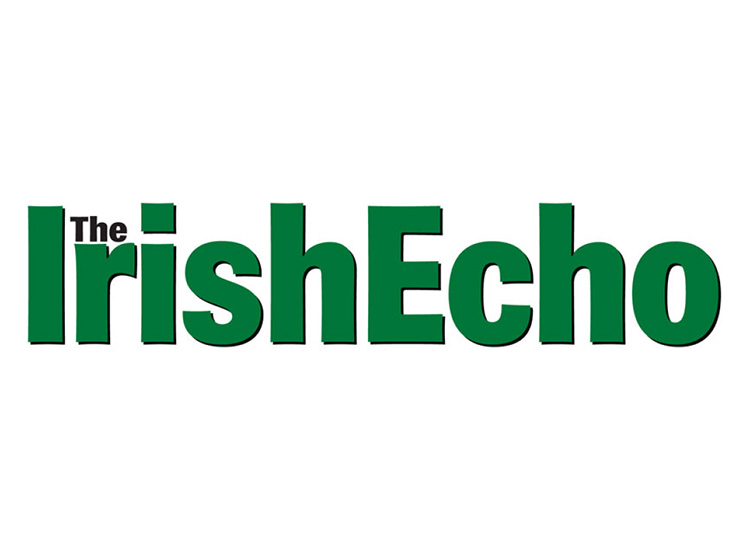November, 2015 and Congressman James Sensenbrenner meeting with then Irish Foreign Minister Charlie Flanagan during Flanagan’s visit to Washington. The two discussed Sensenbrenner’s E-3 bill during their meeting.
By Ray O’Hanlon
A renewed effort to secure two year renewable E-3 visas for the Irish could be heading to Congress during its post-election lame duck session.
A bill, jointly sponsored by Congressman Richard Neal, the Massachusetts Democrat and chairman of the congressional Friends of Ireland, and Congressman James Sensenbrenner, a Republican from Wisconsin, is now before the House of Representatives.
A version of it has existed for several years.
Back in in November, 2015, H.R. 3730, proposed allocation to Ireland of E-3 visas not taken up by Australians who enjoy a dedicated annual E-3 allocation.
The bill was placed before the House by Rep. Sensenbrenner and was taken up by the Judiciary Committee. No action was taken at the time.
Action might now be taken.
The Irish Times was reporting that the Irish government was “close to a landmark visa deal with the U.S. which could allow thousands of Irish people to live and work there.”
The Times reported that “a vote could take place on the House floor as early as next week when Congress reconvenes after the midterm elections, though the Bill must ultimately gain Senate support also, where it needs unanimous consent.”
Any House standalone bill would have to find itself a Senate match.
H.R. 3730, according to its language, was intended “to authorize unused visas numbers made available under section 101(a)(15)(E)(iii) of the Immigration and Nationality Act to be made available to nationals of Ireland, and for other purposes.”
It additionally states: “Notwithstanding any other provision of law, visa numbers made available….that were unused by nationals of the Commonwealth of Australia during a fiscal year shall be made available on the same basis in the subsequent fiscal year to nationals of Ireland residing in that country.”
As such, that E-3 proposal does not address the circumstances of the many thousands of undocumented Irish living in the United States.
H.R. 3730 required of possible future Irish applicants that they would have at least a high school education or its equivalent, (which shall include passage of a high school equivalency examination) or have, “within five years, at least two years of work experience in an occupation classified as Zone 2 or higher by the Bureau of Labor Statistics if the alien is a national of the Republic of Ireland.”
It’s unclear at time of writing if the Neal/Sensenbrenner proposal will deviate in any significant way from H.R. 3730, or if it is a carbon copy.
That said, the Irish Times reported that “one key difference this time, according to officials, is the involvement of House Speaker Paul Ryan. Ireland is also offering a reciprocal arrangement to America which will see the Department of Justice ease the requirements for Americans who want to retire in Ireland.”
What’s yet unclear is how the Australians will react.
The Australian E-3 visas allow citizens of that country, and their spouses, to live and work in the U.S. for two years while additionally allowing for the possibility of a renewal.
The visa allocation was included in a trade deal between the U.S. and Australia but was widely seen as a reward for Australia for its help in the Iraq war.
As such, it was a quid pro quo deal. Any deal between Dublin and Washington would also have a quid pro component given the retirement aspects. U.S. citizens retiring to Ireland can draw their Social Security payments there as a treaty between the two countries allowing for this has existed for some year.
Reported the Irish Times regarding possible E-3s: “Applicants must have a job in the United States to quality and have certain academic or other qualifying credentials. But the E3 is significantly easier and less costly to obtain that the tradition H1B visa.”
The reemergence of a possible E-3 allocation comes against the backdrop of negotiations between Dublin and Washington that have included discussions between Taoiseach Leo Varadkar and President Donald Trump - on St. Patrick’s Day in the White House - and John Deasy, a member of Mr. Varadkar’s Fine Gael party who has been acting as a de facto envoy to the U.S. Congress.
“We’re dealing with the leadership in both the House and the Senate on this issue from both the Democrat and Republican side. Definite progress has been made in the last two or three weeks,” Mr. Deasy has stated.
Mr. Deasy “declined to discuss the specifics of the negotiations” stated the Times, “but he said that officials have a “definite timeline in terms of what we would like to see happen.”
“From the beginning the Taoiseach and I believed that any immigration agreement would require a bilateral arrangement that would benefit both sets of citizens,” Deasy said.
Again from the Times report: “One outstanding question is the status of the undocumented Irish already living in the US. While in the first instance the E3 visa scheme is likely to apply to future flows of Irish people, sources have indicated that discussions are also under way about accommodating undocumented Irish citizens who may qualify.
“The news from Washington comes as the Irish Government on Tuesday approved a series of measures to deepen and enhance Irish-U.S. relations, specifically inviting more American politicians to visit Ireland.
“While the Taoiseach and Ministers have made 169 visits to the U.S. since 2012, visits by American politicians are rarer, and the Government will seek to invite more U.S. mayors, members of Congress and national politicians to Ireland in the coming years.
“Approving a review of U.S.-Ireland relations brought to Cabinet by Minister for Foreign Affairs Simon Coveney, the Government decided that there should be ‘aggressive engagement’ with Irish-American politicians in the new Congress.”
The requirement that jobs relating to qualifications, and jobs secured in advance, might be required of any who want to secure E-3 visas brings to mind not only H1B visas, but also the extended J1 visas which have a job in advance requirement.
Australian take up of E-3 visas has varied year by year though a source told the Echo that it lately has been about 6,500 a year and “growing.”
E-3 visas for the Irish certainly has bipartisan support in the Congress. The question is to what extent.
The Senate immigration reform bill passed by that chamber in 2013, the so-called “gang of eight” bill, included a provision for 10,500 E-3 visas specifically dedicated to the Irish that was penned by Senator Charles Schumer.








